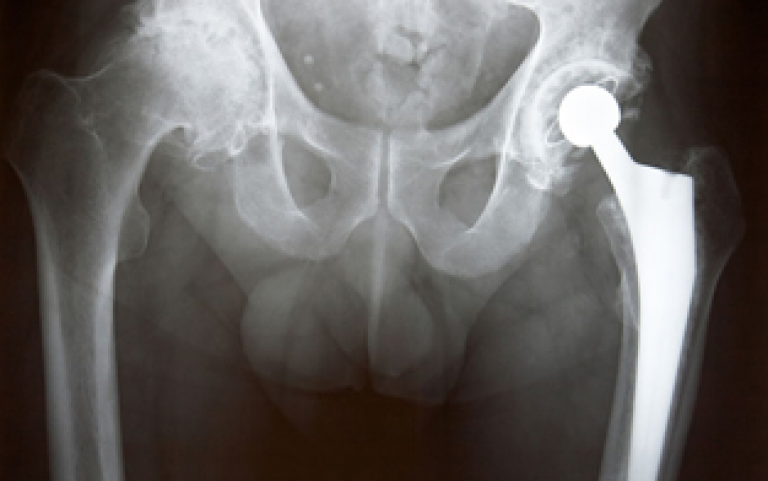Shaping the future of hip replacement surgery
Metal on Metal (MOM) hip replacements were globally popular. Since they were pioneered in 1997, more than 1.5 million have been undertaken, including over 100,000 in the UK alone.

3 May 2017
In 2006, orthopaedic surgeons Alister Hart and John Skinner noticed that many patients who had MOM hips had a relatively high level of unexplained pain, severe enough to require revision surgery to replace the original parts. This revision surgery is often challenging as the cobalt and chromium released from the MOM hip replacements can cause irreparable damage to the muscles and ligaments of the hip joint. The London Implant Retrieval Centre (LIRC) opened in 2008, with the aim of radically improving clinical outcomes for patients undergoing hip replacements and revision surgery. The LIRC collects failed hips - equivalent to the black box flight recorder of an aircraft - so that lessons can be learnt for future patients.
Design, precision and specialisation
Founded with funding from the British Orthopaedic Association and nine manufacturers, the LIRC's specialists include biomedical engineer Professor Gordon Blunn of UCL and Professor Alister Hart, Consultant Orthopaedic surgeon at the Royal National Orthopaedic Hospital NHS Trust. Their team has implemented and managed the first global retrieval program for medical implants. This sees them unravelling the complicated relationship between surgical positioning, implant design and patient factors that can lead to good or bad performance in hip implants.
"A failed implant is like a black box of an aircraft. It holds vital information that can help understand why it failed," says Professor Hart. So far, the LIRC has investigated this problem using 5,000 components from over 2,500 patients in over 20 countries. Since 2011, their research has focused on the examination of microscopic wear and corrosion at the tapered junction between head and stem parts of MOM implants.
From the organisation's inception, their insights have driven regulatory changes and new protocols for standards, clinical management, monitoring, safety and patient care around the globe.
Expertise that's in demand
In 2014, Professors Blunn and Hart were awarded UCLC's 'Consultant of the Year' Award for their work. "It is a pleasure working with Gordon and Alister and it has been highly gratifying negotiating and facilitating the agreements for their projects, which ultimately allow us to gain a deeper understanding of the pitfalls of the past and future ways forward for implant technology," says Cameron Logan of UCL Consultants. Blunn and Hart have been involved in consultancy projects with a total overall value of £2 million over the last two years, including a number of Expert Witness consultancies for law firms relating to failed MOM replacements.
Professor Hart says of their work with UCLC: "UCL Consultants provides a service that balances the commercial sensitivity required by industry with the goals of UCL as a research and teaching centre." With its cutting edge analysis of hip replacement failures and state-of-the-art solutions, the LIRC are sure to remain pioneers of MOM implant expertise for a long time to come.
 Close
Close


